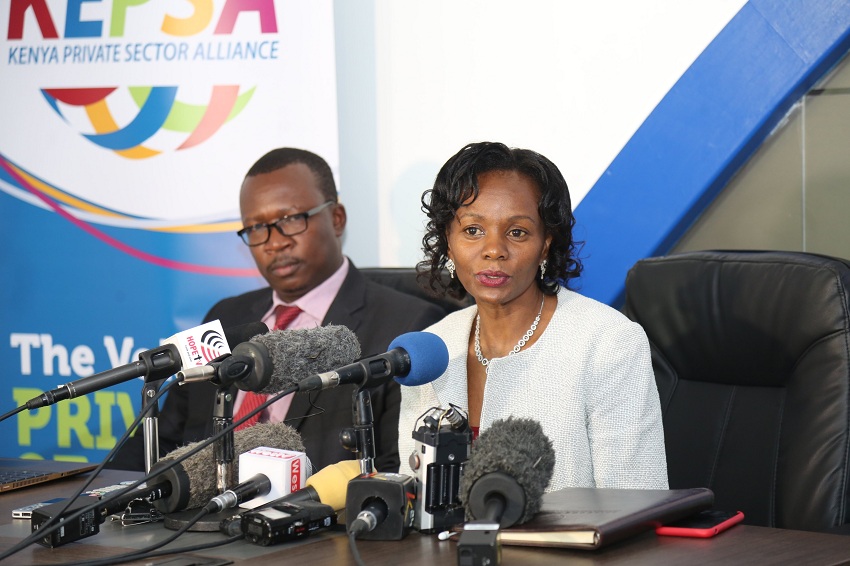Agribusiness
Kepsa Unveils a Strategy for Businesses to Tackle Climate Change

Kenya Private Sector Alliance (Kepsa) has launched a strategy that aims at promoting coordinated and inclusive business climate change solutions across the sector.
The private sector lobby is championing green business environment reforms for sustainable development.
The Kenya Private Sector Strategy On Climate Change Solutions (2022 – 2030) will be implemented in partnership with the National Treasury and Planning, Ministry of Environment and Forestry and the Food and Agriculture Organisation of the United Nations (FAO).
The strategy now serves as the basis of private sector-driven decisions on climate change and presents the sector’s foremost step towards enhancing climate change mitigation and adaptation through investment, awareness creation and directing resources to combat climate change for business sustainability.
According to Kepsa Deputy CEO Martha Cheruto, the private sector faces significant exposure to climate risk through its assets, operations, and supply chains.
Thus, she added, there is considerable reason to invest in climate risk management, to not only protect itself but also to harness new business opportunities arising from the changing climate.
“The strategy identifies actions that the private sector will take between 2022 and 2030 in contributing to the achievement of the government climate change targets and is positioned to be Kenya’s Business Commitment to Climate Action(B2CAK) for both Corporates and SME’s”, Cheruto said.
Private sector, she added, now has a clear agenda to address climate change challenges, not only through mobilisation of funds and technical resources but to also innovate and develop solutions to alleviate climate change risks and efficiently direct resources toward national climate and development priorities.
Hamisi Williams, FAO Kenya Deputy Representative said that adverse climatic events in the recent past have caused major socioeconomic impacts affecting the whole country.
The events also continue to derail economic development while adding to the financial liability of drought, floods and habitat loss including biodiversity in plant and wildlife resources, as well as threats to coastal zones through continued rising sea-levels.
Williams said that today over 4.5 million Kenyans are facing the extreme risks of climate change through starvation with over 2.5 million livestock already lost to hunger.
“Kenya therefore, needs to change its approaches by investing in technology in building the necessary ecosystem to help mitigate these two effects of climate change including for the first time after 70 years, the locust infestation in 2019-2022, which was further worsened by the Covif-19 pandemic,” Hamisi said.








